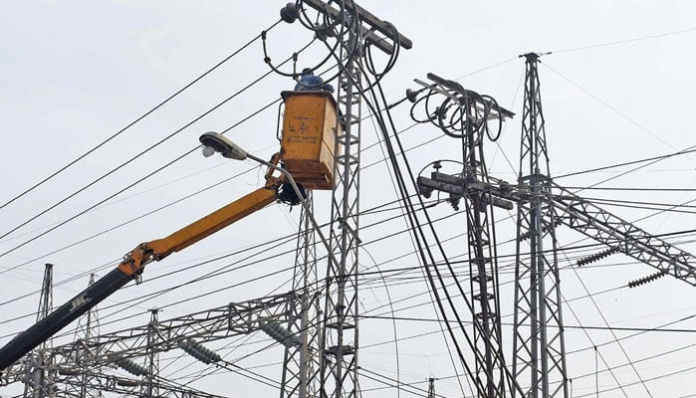ISLAMABAD, NOV 8 (DNA): Consumers switching to self-generated power, especially solar energy, has put Pakistan’s national energy infrastructure under growing pressure, endangering the grid’s long-term sustainability and stability, experts said.
At the Sustainable Development Policy Institute’s (SDPI) annual plenary on Thursday, experts encouraged policymakers to create a comprehensive plan that strikes a balance between the expansion of renewable energy sources and grid reliability.
CEO of Attock Refinery and Attock Gen Limited Adil Khattak said Pakistan’s move to renewable energy is hampered by systemic inefficiencies, even though the country produces more energy than it uses.
He underlined that imbalances have unintentionally been created by the increase in self-generated solar electricity, which is made possible by net metering, which enables solar owners to sell excess power back to the grid.
“Net metering puts a burden on those unable to afford solar panels, while those who can are moving off the grid, which destabilises the overall energy system,” he stated.
Notwithstanding these obstacles, Khattak said, the transition to renewable energy is essential but requires resolving structural problems in the energy system.
United Energy Pakistan Company Secretary Tanveer Afzal Mirza emphasised the private sector’s increasing interest in wind energy, which has drawn investments totalling around $3 billion.
He did, however, note that regulatory barriers, inconsistent policies, political and economic uncertainty, and other factors are impeding future advancement.
Hussain Talib, Head of External Affairs at Unilever Pakistan, underlined the need for closer collaboration between the government and industry to achieve net-zero emissions, citing the Power Wheeling Coalition, a group working toward renewable energy policy reforms.
He advocated for a liberalised energy market to support green initiatives but stressed that implementation responsibility lies with the government.
Tauseef H Farooqi, former chairman of National Electric Power Regulatory Authority (Nepra), criticised Pakistan’s current energy system, calling it “neither affordable, nor reliable and certainly not sustainable.”
He urged greater private sector involvement but warned that without stable investment opportunities, progress will remain limited. One major issue raised was the need for affordable battery storage solutions to support renewable energy sources.
Farooqi also updated participants on Pakistan’s Carbon Trading and Bilateral Contract Market (CTBCM) approved by Nepra in 2023 but noted the government still needs to set affordable wheeling charges for it to take effect.
Daniyal Siddiqui from DSC Energy Ltd. emphasised the importance of fast-tracking CTBCM to attract investment and help achieve green finance goals, while Shah Jahan Mirza, Managing Director of Private Power and Infrastructure Board (PPIB), warned that poor planning based on overestimated GDP growth projections has led to supply-demand imbalances. “The entire community must unite to reach net-zero emissions,” said Mirza.
Without decisive action from policymakers, Pakistan’s energy sector risks facing continued instability and inefficiency, he added.

















